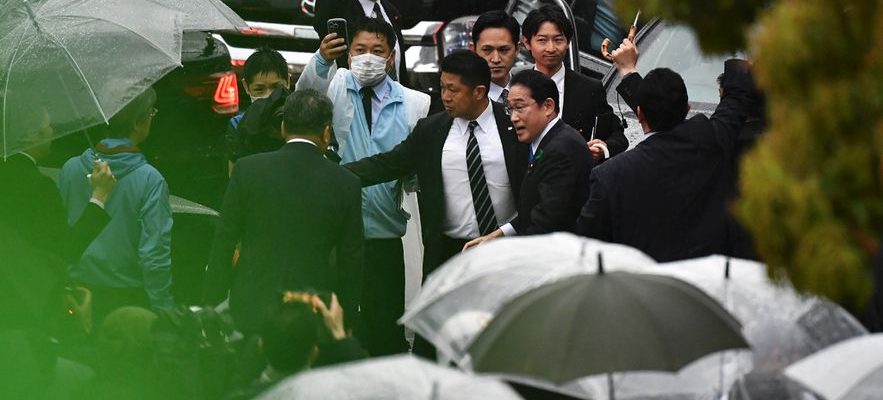YEMEN
Mass prisoner exchanges
After several months of truce, the Houthi rebels and the government of Yemen are speeding up their peace negotiations. On April 16, more than 800 prisoners were exchanged between the two camps, “giving hope of an imminent end to their interminable war”, estimated Al Jazeera. “These exchanges and peace negotiations come a month after the restoration of diplomatic relations between Saudi Arabia and Iran, which led to a wave of rapprochements across the region,” points out the Qatari media. Yemen has been plagued by a civil war since 2014, which has claimed more than 370,000 lives according to the UN.
UNITED STATES
Leak of classified documents: a soldier arrested
Suspected of being at the origin of a leak of secret documents, a young American soldier was indicted on April 14, in one of the most serious scandals of this type for more than ten years in the United States. The documents contained sensitive information about the war in Ukraine or suggested that the United States was collecting intelligence on allied countries such as South Korea or Israel. However, the mystery remains intact. “We still wonder why a 21-year-old member of the Air National Guard had access to such confidential information – and why it was not discovered more quickly”, notes the channel. CNN.
POLAND
Ukrainian grain banned
Imitated on the same day by Hungary, Poland on April 15 banned imports of cereals and other agricultural products from Ukraine until the end of June – a measure that does not comply with European law. The reason ? The influx of Ukrainian wheat since the Russian invasion has caused prices to fall, putting Polish farmers in difficulty, who are mounting protests. “The Law and Justice Party [au pouvoir depuis 2015] sacrifices Ukraine to save the rural electorate”, is indignant the daily Rzeczpospolitaas the country prepares to renew its parliament in the fall.
JAPAN
Prime Minister’s Security Alert
While campaigning for a by-election, Japanese Prime Minister Fumio Kishida was targeted by an explosive device in the city of Wakayama on April 15. Protected by his bodyguards, the head of government was not injured by the “smoke bomb”, but the incident shocked the country, a year after the assassination of former Prime Minister Shinzo Abe. A 24-year-old man, who allegedly acted alone, was arrested. “The Kishida incident shows how protecting lone wolf personalities remains a daunting challenge,” underlines the Japan Times. A question all the more pressing as Japan hosts the G7 summit next month.
Japanese Prime Minister Fumio Kishida (2nd d) arrives in Urayasu for an election rally, April 15, 2023
© / afp.com/Kazuhiro NOGI
RUSSIA
Kara-Mourza sentenced to 25 years in prison
The trial was expedited. Vladimir Kara-Mourza, one of Vladimir Putin’s fiercest opponents, was sentenced on April 17 by a Moscow court to twenty-five years in prison, notably for “high treason”. This journalist, a historian by training, had denounced the war against Ukraine from its earliest hours. Victim of poisoning in 2015 and 2017, he has been in detention for a year, where he lost 22 kilos according to his relatives. “His treatment continues to show the threat the Kremlin poses to democratic values around the world,” denounces the washington post in an editorial.
SUDAN
Bloody duel at the top of the state
An open war broke out on the night of April 16 between the two most powerful generals in the country: on the one hand Abdel Fattah al-Burhan, head of the Sudanese army and the ruling junta; on the other, Mohamed Hamdan Dagalo, nicknamed Hemeti, who leads the fearsome militias of the Rapid Support Forces. Clashes between these two factions left dozens dead. At stake is a struggle for power and control of the agricultural and gold wealth of Sudan. “Sudan’s nightmare scenario is coming true”, deplore the New York Timesfearing the imminence of a civil war.
BRAZIL
Lavrov visits Brasilia
After his visit to China where he met Xi Jinping on April 13 and 14, President Lula received Sergei Lavrov, the Russian Foreign Minister, in office since 2004. Brazil claims to remain “neutral” and equidistant from Beijing, Moscow and Washington, but the White House sees things differently. “Lula’s latest statements have angered members of the US government, who have the impression that Brazil has adopted a tone openly opposed to Washington and has aligned itself with Moscow and Beijing”, notes the daily. O Globo.
